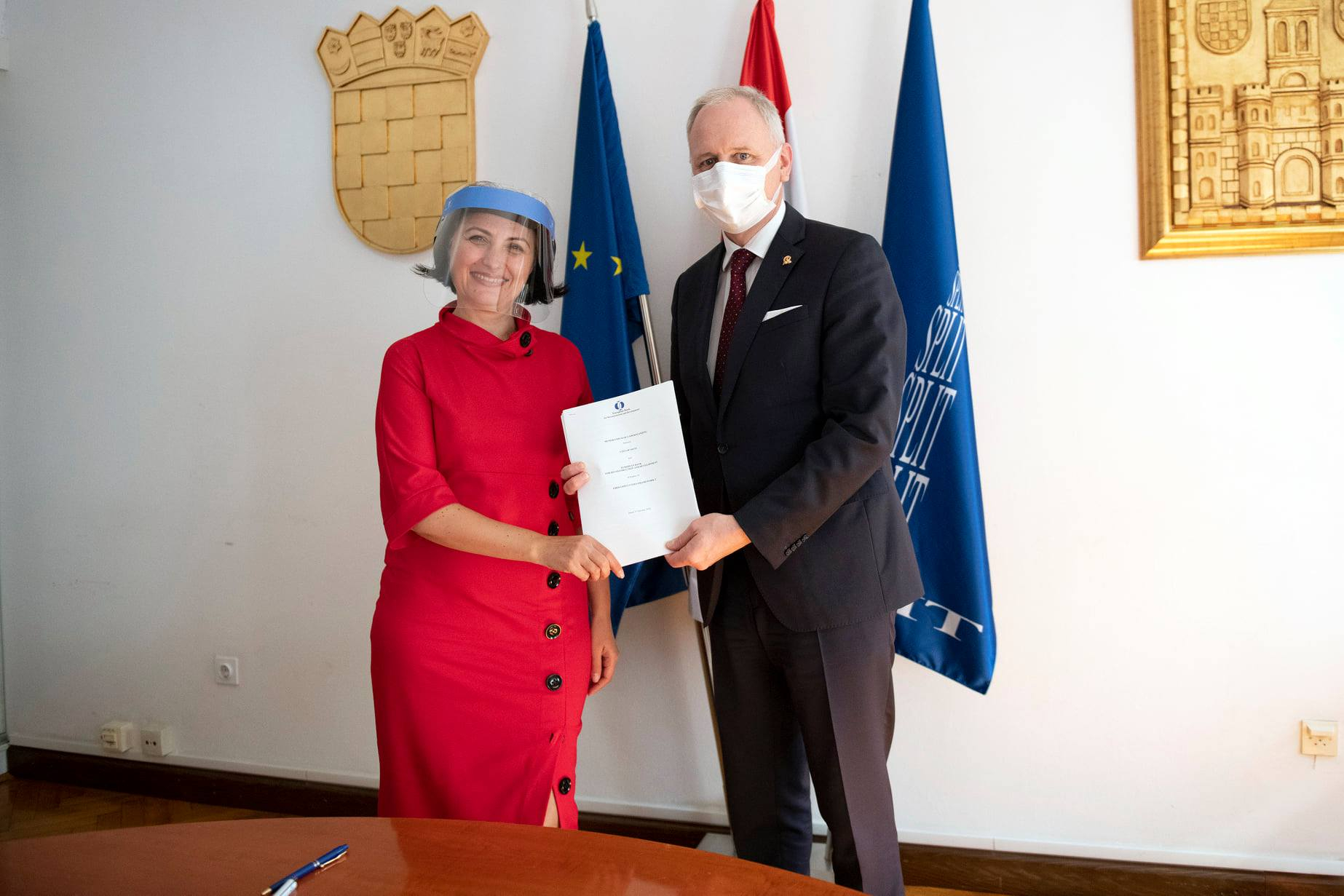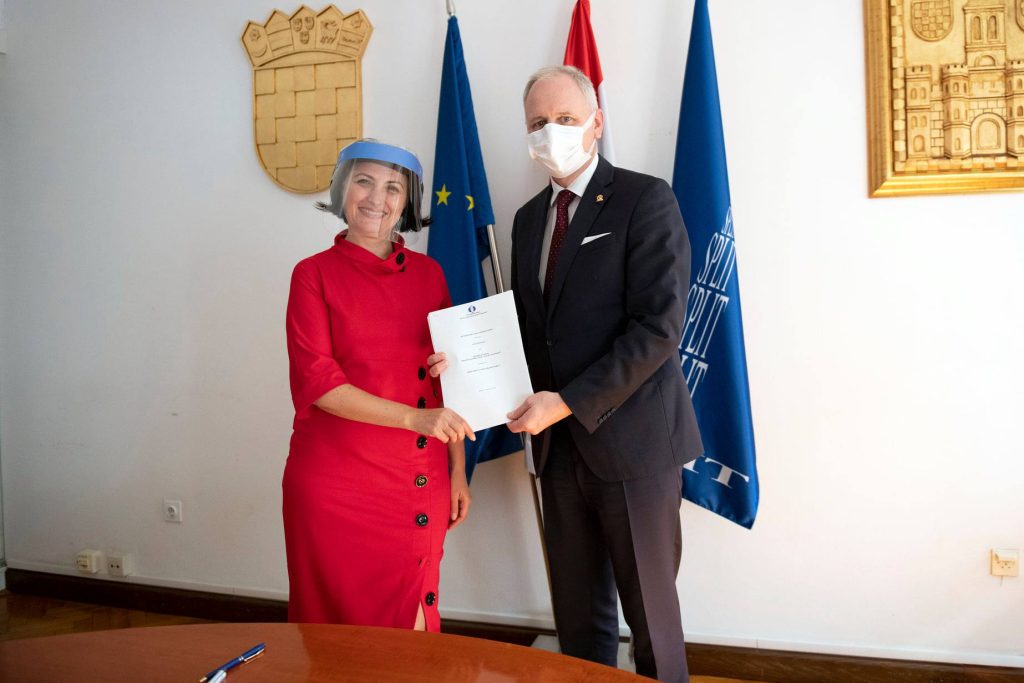
October 16, 2020 – Split is the first Croatian city to join the European Green Cities program for reconstruction and development, thus developing environmentally-friendly infrastructure.
With the signing of the Memorandum of Understanding by Mayor Andro Krstulović Opara and Victoria Zinchuk, Director of the European Bank for Reconstruction and Development for Croatia (EBRD), the development of the ‘Green City Action Plan’ began, according to the EBRD and OECD methodology, and Split is thus the first city that intends to become a ‘green city’ in Croatia, the city reported on its Facebook page.
“Today’s agreement is a confirmation and continuation of the successful cooperation of the City of Split with the European Bank for Reconstruction and Development, which is one of the key partners in the development of large urban projects through international experience and support by financing the Masterplan study of urban regeneration of Split, technical assistance for documentation for the ESCO model of public lighting in the City of Split and crediting the construction of drinking water treatment plants,” said Mayor Andro Krstulović Opara.
The EBRD has started the procurement procedure for the developers of the ‘Green City Action Plan.’ It will begin to be developed by the end of this year, in cooperation with many stakeholders working on the green city concept for many years. Areas highlighted by the City of Split, which will be given special attention during the drafting of the Action Plan, are waste disposal, water supply, and sewage, city roads and lighting, public transport and sustainable urban mobility, development of cycling infrastructure, the energy efficiency of public buildings, renewable energy sources, and energy efficiency of energy infrastructure and parks and afforestation of neglected green areas.
Among the first projects under the Green Cities program, the European Bank will finance a drinking water purifier in Split with a 20m-euro loan. According to Director Zinchuk, it is ready to provide further support in co-financing EU projects in the agglomeration. The EBRD launched the Green Cities program in 2016 for 5 years and with a EUR 250 million budget. Due to high demand and popularity, the program budget was renewed after only two years, and in the meantime, program funding has quadrupled. The EBRD’s Green Cities program also supports the Green Climate Fund.
The EBRD’s Green Cities Program supports cities in addressing key environmental and quality of life challenges. Participating cities access the program with the help of the EBRD and investments in projects that improve environmental infrastructure. The Green Cities program also includes developing an action plan for the development of green communal infrastructure. The action plan identifies the key challenges that each city faces in environmental protection and climate change, defines the necessary investments in basic infrastructure, and suggests changes in public policy measures towards broader strategic goals.
The EBRD is the originator of financing projects that promote renewable energy and the fight against climate change and has become a leading investor in renewable energy sources in Central and Eastern Europe, Central Asia, and the southern and eastern Mediterranean. Through its strategic GET (Green Economy Transition) approach, the EBRD intends to increase investments in green projects to 40% of its total annual investment by the end of 2020 or to 50% of total investments by 2025. Through its GET strategy, the Bank encourages the construction of environmentally sustainable economies, reduces carbon emissions, and increases the resilience of economies to climate change.
Globally, cities generate 70% of energy consumption and 80% of greenhouse gas emissions and therefore pose a major challenge in combating climate change and the negative impact on the environment. This is particularly the case in cities in countries where the EBRD operates, where outdated urban infrastructure reduces residents’ quality of life, increases greenhouse gas emissions, and prevents society from adapting more quickly to climate change.
To read more about lifestyle in Croatia, follow TCN’s dedicated page.









